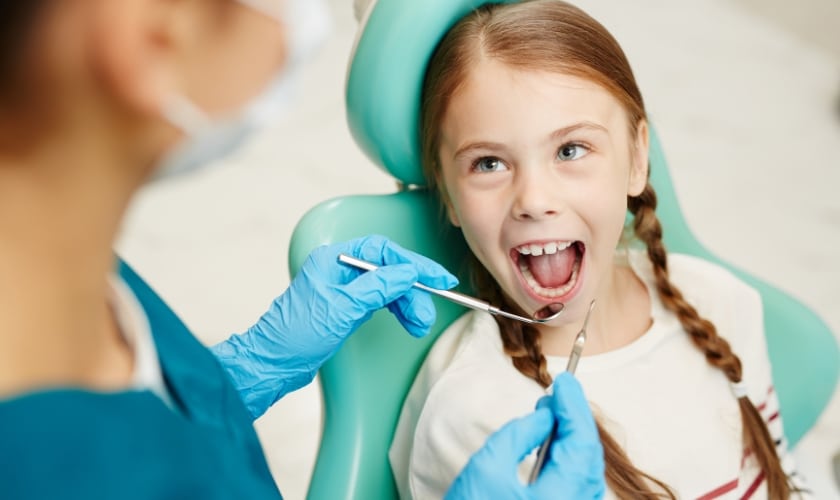
Good oral health is essential for overall well-being, yet it often takes a back seat in many people’s lives. Neglecting dental care can lead to various oral health issues, ranging from cavities and gum disease to more severe conditions requiring extensive treatments. However, by adopting proactive dental care strategies, individuals can enjoy a lifetime of healthy smiles. If you’re looking for exceptional dental care, consider visiting the Top-Rated Dentist Chapel Hill NC for professional and compassionate service.
Understanding Proactive Dental Care
Proactive dental care involves taking preventive measures to maintain oral health and prevent dental problems before they arise. It emphasizes the importance of regular oral hygiene practices and routine dental check-ups.
Daily Oral Hygiene Routine
One of the fundamental aspects of proactive dental care is maintaining a consistent daily oral hygiene routine. This includes brushing teeth at least twice a day using fluoride toothpaste and a soft-bristled toothbrush. Proper brushing techniques, such as gentle circular motions, help remove plaque and prevent cavities.
In addition to brushing, flossing plays a crucial role in removing food particles and plaque from between teeth and along the gumline. Flossing should be done at least once a day to prevent gum disease and cavities in hard-to-reach areas.
Using mouthwash as part of a daily oral hygiene routine can also provide additional protection against bacteria and plaque buildup. Mouthwashes containing fluoride or antibacterial properties can help strengthen enamel and reduce the risk of tooth decay.
Healthy Dietary Habits for Dental Health
Diet plays a significant role in maintaining optimal dental health. Consuming sugary and acidic foods and beverages can contribute to tooth decay and erosion of enamel. It’s essential to limit the intake of sugary snacks and drinks and opt for nutritious foods rich in vitamins and minerals beneficial for dental health.
Foods high in calcium, such as dairy products and leafy greens, promote strong teeth and bones, while crunchy fruits and vegetables can help clean teeth naturally and stimulate saliva production, which aids in neutralizing acids in the mouth.
Regular Dental Check-ups
Regular dental check-ups are vital for detecting and preventing dental problems early on. Dentists recommend scheduling dental visits every six months for routine examinations and professional cleanings. During these visits, dentists can identify any signs of decay, gum disease, or other oral health issues and provide timely treatment to prevent further complications.
Professional cleanings remove plaque and tartar buildup that brushing and flossing alone cannot eliminate, reducing the risk of cavities and gum disease.
Avoiding Harmful Habits
Certain habits can have detrimental effects on dental health. Smoking, for example, not only stains teeth but also increases the risk of gum disease, tooth loss, and oral cancer. It’s essential to avoid smoking and other tobacco products to maintain healthy teeth and gums.
Furthermore, limiting the consumption of acidic and sugary drinks, such as soda and fruit juices, can help prevent enamel erosion and tooth decay. Drinking water or milk instead of sugary beverages can hydrate the body and promote better oral health.
Protective Measures
Protecting teeth during physical activities and contact sports is crucial for preventing dental injuries. Wearing a mouthguard can cushion blows to the face and reduce the risk of chipped or knocked-out teeth. Custom-fitted mouthguards provided by dentists offer the best protection and comfort for athletes of all ages.
Fluoride, a mineral found in toothpaste and drinking water, plays a vital role in preventing tooth decay and strengthening enamel. Using fluoride toothpaste and receiving professional fluoride treatments during dental visits can help maintain healthy teeth and prevent cavities.
Managing Dental Anxiety
Dental anxiety is a common issue that prevents many people from seeking necessary dental care. Techniques such as deep breathing, visualization, and progressive muscle relaxation can help reduce anxiety and promote relaxation during dental procedures.
Additionally, establishing open communication with the dentist and discussing any fears or concerns can help alleviate anxiety and build trust in the dental care provider.
Specialized Dental Care for Different Stages of Life
Dental care needs vary at different stages of life, from childhood to adulthood and into the senior years. Early dental interventions, such as sealants and fluoride treatments, can help prevent cavities and promote proper dental development in children. Adolescents may require orthodontic treatments to correct bite issues and misaligned teeth.
In adulthood, maintaining good oral hygiene habits and addressing any dental issues promptly can prevent tooth loss and gum disease. Seniors may face challenges such as dry mouth, gum recession, and tooth sensitivity, requiring specialized dental care tailored to their needs.
Incorporating Dental Care into Daily Routine
Making dental care a priority in daily life involves establishing habits that promote oral health and integrating them into one’s routine. Setting reminders for brushing and flossing, as well as scheduling regular dental check-ups, can help ensure consistency in maintaining dental hygiene.
Finding enjoyable aspects of dental care, such as using flavored toothpaste or listening to music while brushing, can make the experience more enjoyable and encourage adherence to oral hygiene practices.
The Role of Technology in Dental Care
Advances in dental technology have revolutionized the field of dentistry, making treatments more efficient, comfortable, and precise. Digital imaging techniques, such as intraoral cameras and cone beam computed tomography (CBCT), allow dentists to obtain detailed images of the teeth and jaws for accurate diagnosis and treatment planning.
CAD/CAM technology enables the fabrication of dental restorations, such as crowns and bridges, in a single visit, saving time and reducing the need for multiple appointments. Laser dentistry offers minimally invasive solutions for various dental procedures, including gum disease treatment and cavity detection.
Environmental Impact of Dental Care
While dental care is essential for maintaining oral health, it’s essential to consider its environmental impact. Traditional dental practices, such as amalgam fillings and disposable plastic products, contribute to pollution and waste generation.
Sustainable dental practices, such as using biodegradable materials and reducing water and energy consumption, can minimize the environmental footprint of dental offices. Eco-friendly dental products, such as bamboo toothbrushes and compostable floss, offer alternatives to conventional oral care products.
Addressing Common Dental Concerns
Gum disease, tooth sensitivity, and bad breath are common dental concerns that can affect oral health and overall well-being. Preventive measures, such as regular brushing, flossing, and dental check-ups, can help prevent gum disease by removing plaque and tartar buildup along the gumline.
Tooth sensitivity can be managed with desensitizing toothpaste and avoiding acidic foods and beverages that exacerbate sensitivity. Bad breath, or halitosis, may be caused by poor oral hygiene, dry mouth, or underlying health issues. Practicing good oral hygiene habits and staying hydrated can help alleviate bad breath.
Community Dental Programs and Initiatives
Community dental programs and initiatives play a vital role in promoting oral health and providing access to dental care for underserved populations. These programs may offer free or low-cost dental services, educational workshops, and outreach events to raise awareness about the importance of oral hygiene.
Volunteering with community dental programs provides an opportunity for dental professionals and students to give back to their communities and make a positive impact on people’s lives. By participating in dental outreach initiatives, individuals can help improve access to dental care and promote oral health equity.
Conclusion
Maintaining good oral health requires proactive dental care strategies that focus on prevention and early intervention. By incorporating daily oral hygiene practices, following a healthy diet, attending regular dental check-ups, and avoiding harmful habits, individuals can enjoy a lifetime of healthy smiles and overall well-being.


